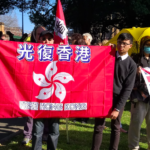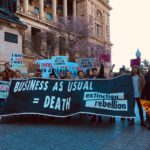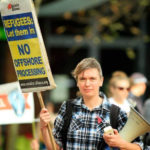Striking for Their Future: An Interview With School Strike for Climate’s Evan Meneses
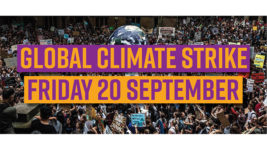
Bushfire season has kicked in this year earlier than ever before. Fires have been raging across northern NSW and Queensland. And while climatologists have said the fires aren’t directly attributable to the climate emergency, it’s quite easy to do the math.
As Sydney University professor Dale Dominey-Howes explained in the Conversation, “climate change is increasing the risk of more frequent and intense fires”. And the professor noted that “the current emergency has essentially exploded out of nowhere”.
Australia is facing an abnormally hot and dry spring, experts from the Australian Bureau of Meteorology have warned, as the Antarctic is suddenly experiencing an unexpected heatwave: the strongest on record.
A rare and sudden stratospheric warming is occurring above the South Pole, which has caused a reversal in wind direction, sending the rains to other regions of the globe, while this continent will experience “reduced rainfall, clearer skies and warmer temperatures.”
The awakening of a movement
Anomalies in weather patterns are fast becoming the new norm. July was the hottest month ever recorded, which saw wildfires burning across Alaska, and in the Amazon, whilst more fires blazed across sub-Saharan Africa than anywhere else on Earth.
And it was because of Sweden’s hottest ever recorded summer last year that then 15-year-old Swedish ninth-grade school student Greta Thunberg began striking from school in August and sitting outside the Riksdag-Swedish parliament, with a sign reading “school strike for climate”.
Thunberg not only drew the attention of the local media, but her solo protest captured minds across the globe, which resulted in around half a million students in over 100 countries striking on 30 November last year.
In Australia, children protested in all major cities and 20 regional centres. However, reactionary types, like prime minister Scott Morrison, criticised the young people. “What we want is more learning in schools and less activism,” he told parliament.
Demanding action
Australia’s School Strike for Climate is currently organising what are set to be huge turnouts for the 20 September Global Strike for Climate, which will take place in centres around the country. And this time the students are encouraging adults to cut work and join the rallies.
Evan Meneses is a 17-year-old year-eleven student from Adelaide High School. And he’s been helping coordinate next week’s strike, which is predicted to far outnumber the last nationwide student strike that saw 150,000 take to the streets in March.
Sydney Criminal Lawyers spoke to Evan Meneses about the drastic nature of the climate crisis, what his generation faces if governments fail to take appropriate action and why students should be striking considering that’s what their education has taught them to do under the circumstances.
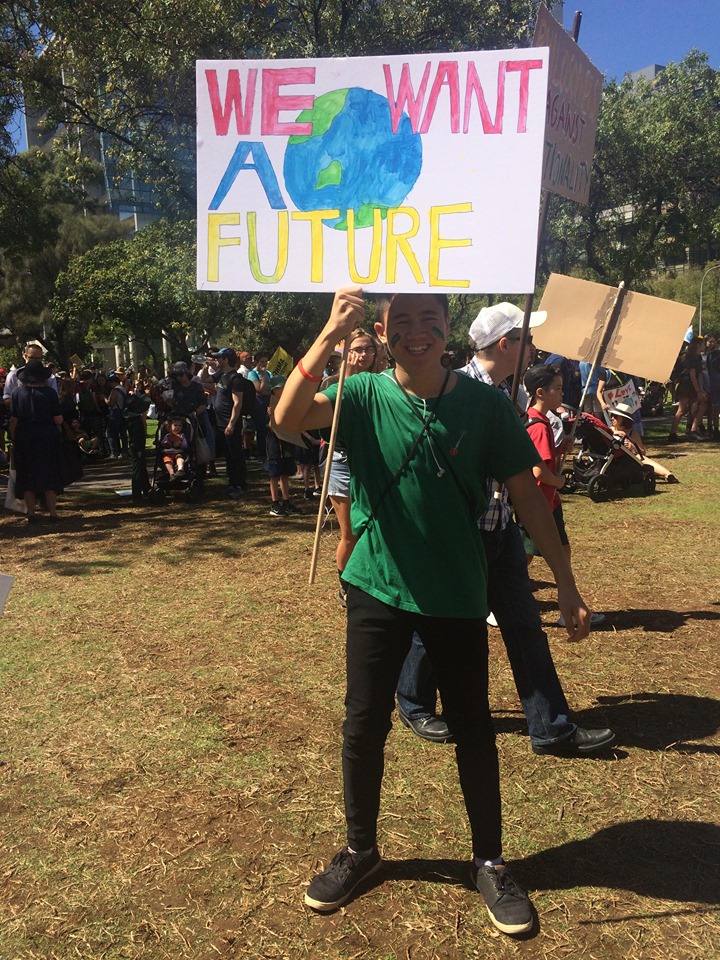
Firstly, you’re helping organise the Global Strike for Climate in this country on 20 September. Evan, what has that involved?
Organising the strike has mainly involved a lot of legal work. We’ve had to organise march permits to make sure we are permitted to be where we need to be at the time.
We also need to organise training for marshals to make sure that when people are marching, they don’t get too close to cars or roads.
On top of this, we need to organise social media and emails – responding to inquiries. We also had to get media training.
What are you expecting on the day?
Last time, the 15 March strike was electric. We had around 150,000 strikers. This time we’re hoping to double that at least. I’m hoping for a massive turnout, especially because it is a general strike.
It will mean a lot to us, when workers, parents and teachers show up to the strike. Because that is the movement we are trying to build right now. Not just students striking for climate, but everyone striking for climate.
So, there’s an emphasis on more than just students this time.
Yes. There’s a big emphasis on unions, workers and making sure that everybody is committed to joining the fight against climate change.
Of course, the movement began from the acknowledgement that the Earth is in the midst of a climate and ecological crisis, and time to act is running out. In your understanding, just how dire is this crisis?
Essentially, the majority of global warming and climate crisis stems from carbon emissions. A few of the impacts of increased carbon emissions include global warming and desertification.
Our use of fertilisers and predominantly reckless agriculture creates topsoil run off, which contributes to dust storms. And it creates dead areas in oceans, lakes and rivers, which kills marine wildlife.
The increased carbon emissions cause ocean acidification, which can dissolve coral, kills plankton and essentially, destroys the natural lifecycle that occurs within our oceans.
This movement was sparked by Greta Thunberg in August last year, when she started her own solo school strike out the front of Swedish parliament.What would you say has been the impact of this movement in the little over the 12 months it’s been around?
The movement has been phenomenal in bringing attention to the climate crisis. Before this, I don’t remember any council or other places actually going to the extent of declaring a climate emergency.
The movement has really brought climate change into the spotlight, because the youth side of it really impacts and connects with a lot of people – that the children are worried enough that they are striking for their future.
What are the demands of the movement? And what reforms do you want to see implemented?
The current demands are funding for a fair and just transition for all fossil fuel workers and communities that are impacted by this. One hundred percent renewable exports and energy production by the year 2030. And no new coal, oil or gas projects.
So, basically, we want to make a swift transition to renewable energies.
Obviously, we want to fund the fair and just transition for fossil fuel communities, as being a grassroots movement, we do pride ourselves on the power of the people and ensuring that everybody gets a fair go at equity, especially when it comes to combatting such a difficult issue.
So, the organisers of School Strike for Climate are young students looking towards the rest of their lives. What do you see ahead if government and industry don’t make the changes that are needed?
If the government and industry don’t make the changes that are required, the Earth will continue to heat up.
The massive implications of the climate crisis are it exacerbates natural disasters, like hurricanes, due to the warmer air. As well, coastal cities and island countries and going to be extremely impacted by rising sea levels.
Overall, the geopolitical implications caused by the climate crisis, will be in places that aren’t as well off as Australia, which will have widespread impacts. I’m extremely worried about this.
Some Australian politicians have been critical of students striking. Prime minister Scott Morrison said there should be “more learning at school and less activism”. How do you respond to these sorts of criticisms?
It’s absolutely ludicrous for them to expect us to be educated at school and then not use that education as a way to combat causes that we then have the knowledge to deal with. They gave us the tools and now they’re expecting us not to use them.
As well as this, informed striking and activism is a fantastic form of informal civics education. And it’s definitely a great way to be politically engaged, especially because we live in a democracy.
It’s important that we know what we are fighting for and the policies of the parties that we are voting for.
Activism is a fantastic way for youth to get through and to show that we are educated. Us skipping school is not a result of us not wanting to be educated. It is a result of us being educated enough to know that this is what’s required.
And lastly, Evan, the 20 September strike is set to see huge numbers gather for climate reform around the globe. And there will be more to come with Extinction Rebellion planning for week-long actions from 7 October.
How do you see the situation developing from here? And how will the needed change be brought about?
Activists need to continue putting the pressure on these industries. The boycotts and the actions that Extinction Rebellion are taking are going to definitely put pressure on the industries to switch to renewables.
The government needs to reimplement the carbon tax in a more efficient manner. Obviously, that’s my opinion and because we are a grassroots movement there are a lot of different opinions around the correct way to tackle it. But, the carbon tax is a good step.
Another thing is, we need a swifter investment in the renewable energy industry, especially as Australia has the potential to be a renewable energies superpower.
But, the government continues to subsidise fossil fuel industries. And it is attempting to prop up what is going to be a dying industry in the future, as renewable technology progresses to better and better stages of energy efficiency.




